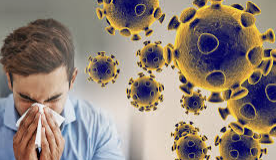The risk of transmission of COVID-19 in Australia remains low with a total of 60 cases nationally and 2 fatalities; however, the situation is evolving, and we should remain alert, but not be alarmed. The following Legeneering restrictions and precautions are based on the latest guidance from the Australian Government, the WA Department of Health (DOH) and the World Health Organisation.
Access to Legeneering offices and sites
- If you have been in close contact with a person confirmed as a case of COVID-19 you cannot access a Legeneering office or associated client site and must follow the Medical clearance is required before returning to work.
- If you have returned from or transited through any of the following countries during business or personal travel, you cannot access a Legeneering office or site for 14 days from the date of your arrival back in Australia:
- mainland China
- Iran
- South Korea
- Italy
- Japan
If you develop symptoms (e.g. fever, temperature above 37.3C, coughing, sore throat and headaches) seek medical care and advise the health provider of your recent travel history.
- If you develop “Flu-like” symptoms (e.g. coughing, sore throat and headaches) or difficulty breathing at a Legeneering office or associated site you must inform your line manager or supervisor immediately and seek medical care.
- If you are living or staying with a person who has travelled from or transited through a country (listed above) in the last 14 days and either of you has “Flu-like” symptoms, you cannot access a Legeneering office or associated site for 14 days and you should seek medical advice.
- If you have had close contact (e.g. visitors staying in your home, you live together, you travelled on an aircraft) with a person who is being tested as a suspected case of COVID-19 and is awaiting results, you cannot access a Legeneering office or associated site until either:
- The person under investigation is confirmed as negative for COVID-19 and you have no symptoms; or
- 14 days has passed from the time of the close contact and you have medical clearance.
- These restrictions also apply to visitors including family, to our facilities or offices. Before entering our facilities, your guests will be asked relevant health and travel questions and may be asked to participate in temperature or other health-related screening.
Working from home
Working from home should be discussed and agreed with your Line Manager in accordance with relevant Legeneering policies.
Personal Travel
If you travel to countries that the WA Health Department currently considers “higher risk”; i.e. China, Japan, South Korea, Iran, Italy, Indonesia (including Bali), Thailand, Singapore, Macau, Hong Kong or Taipei, please be mindful of instructions from local authorities and potential restrictions when returning to Australia as the COVID-19 situation continues to evolve. Also note that the Australian Government advice for mainland China, Iran and South Korea (Daegu) is “do not travel”. Please assess travel risks to all other destinations in line with smartraveller.gov.au
Feeling unwell, even if you have not travelled
Please stay at home, even if symptoms are mild, such as headache and/or mild runny nose and:
- Inform your Line Manager
- Do not return to work until you have been symptom free for at least 24 hours
- If you develop a fever, cough and/or difficulty breathing, seek immediate medical care
- Before attending medical facilities call and inform them of any recent travel history or contact with travellers.
Maintaining Personal Hygiene
Practicing good hand and sneeze/cough hygiene is the best defense against most viruses. Everyone should:
- Wash your hands frequently (use soap, water and/or alcohol-based hand sanitiser)
- Cover your cough or sneeze dispose of the tissue, and use alcohol-based hand sanitiser
- Maintain social distancing from anyone who is coughing or sneezing (e.g. 1 to 2 metres)
- Avoid touching eyes, nose and mouth.
You do not need to wear a mask if you are healthy. While the use of masks can help to prevent transmission of disease from infected patients to others, masks are not currently recommended for use by healthy members of the public in Australia.
